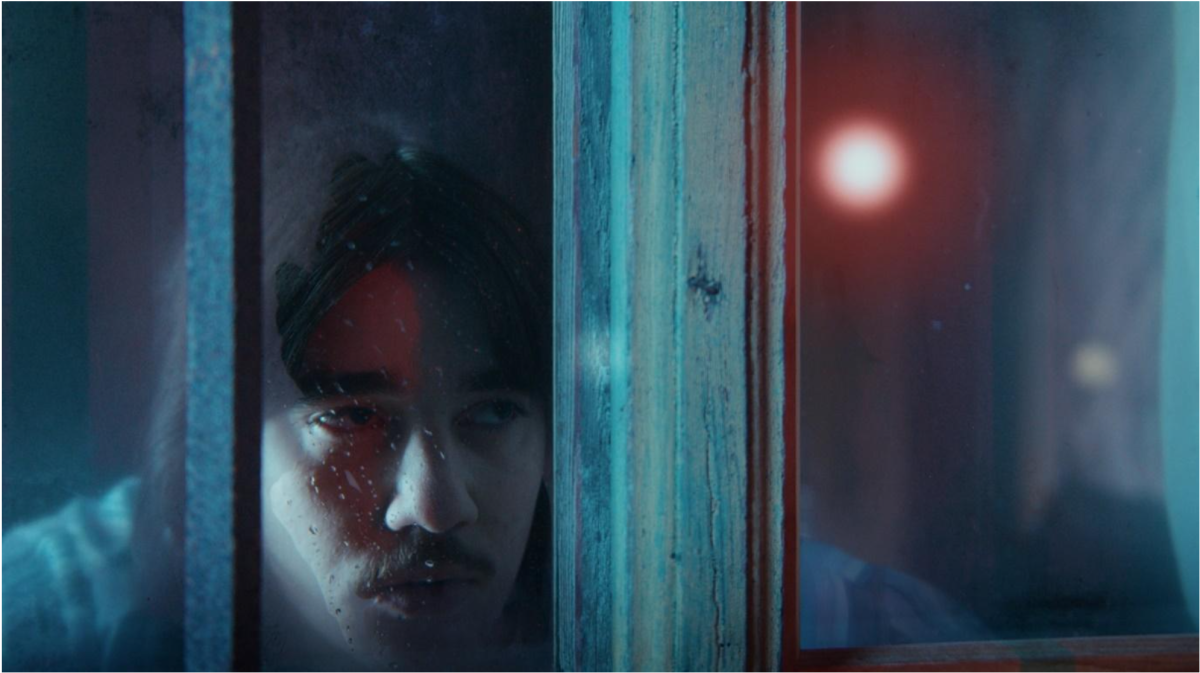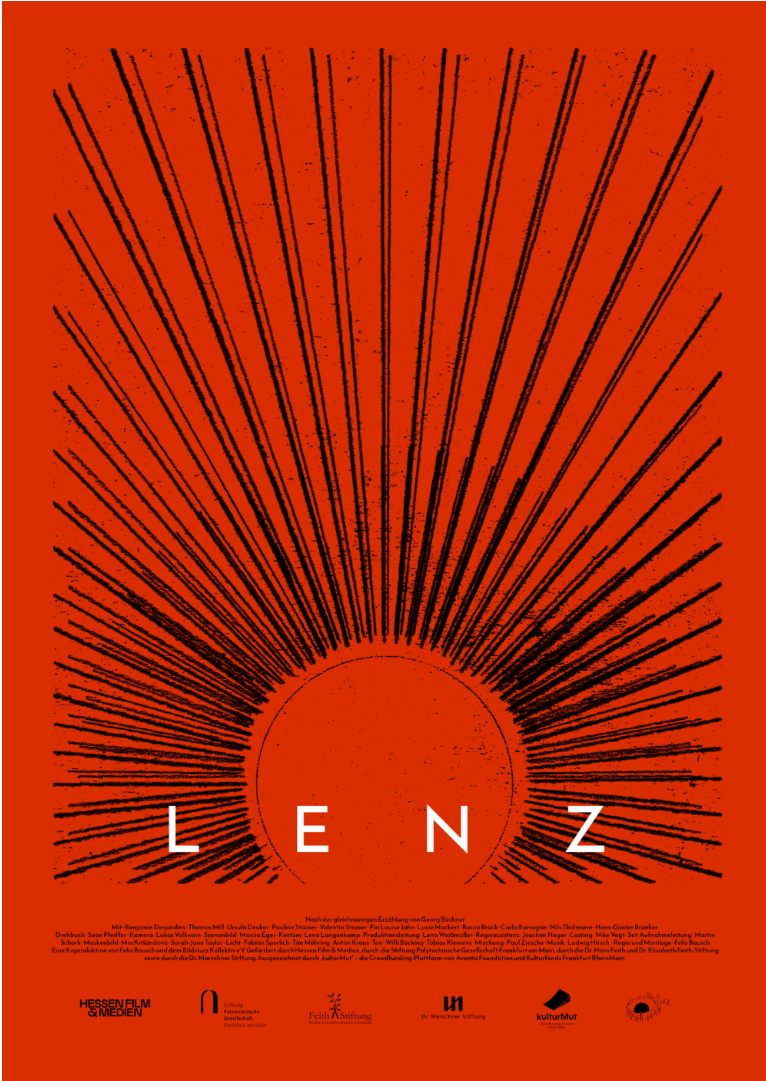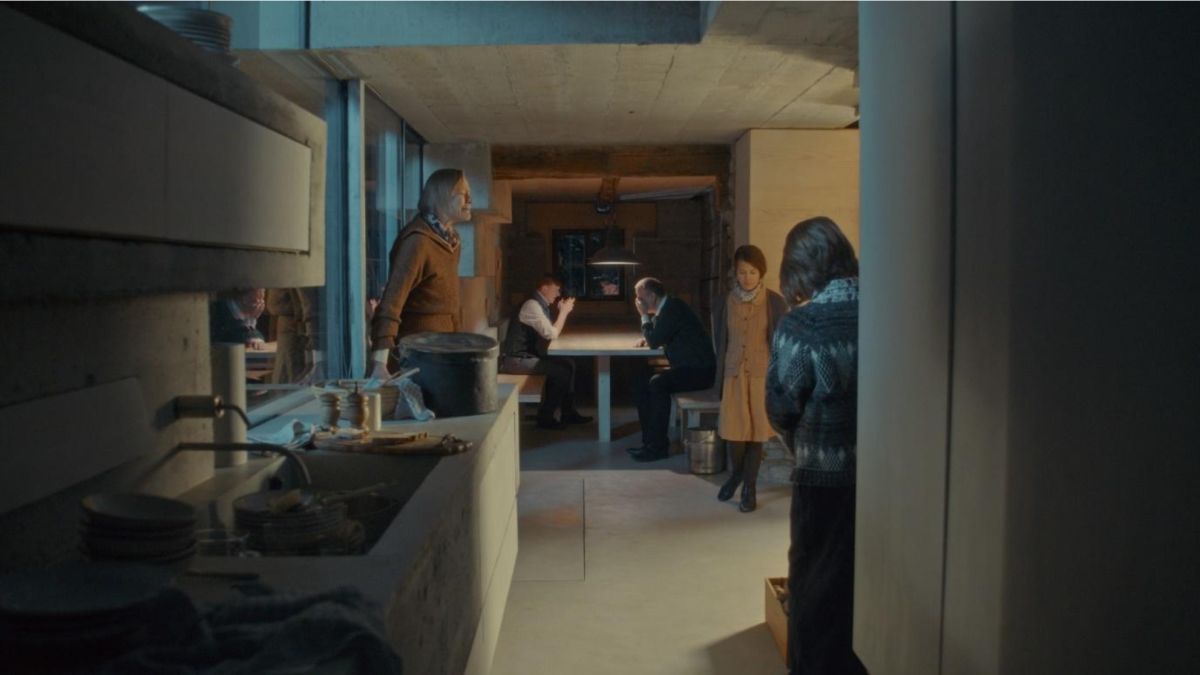When Felix Bausch first read Georg Büchner’s LENZ in school, he despised it. But when he revisited the novel as a young filmmaker years later, he realized that he connected to the protagonist and the themes of mental health, which had gone unexamined in the classroom. It was then, that Felix was inspired to adapt the novel into a film.
Having self-financed all his previous films, Felix Bausch knew that short films often struggle to gather sufficient funding. They also have a relatively brief lifespan and impact, even when accepted to festival programs. In response to these challenges, the collective turned to a two-dimensional approach. Next to the production of LENZ, they organised a social campaign that fit its themes.
In cooperation with the Frankfurt Association for the Support of Mentally Ill Children & Adolescents, the collective implemented film screenings and workshops across schools in the area, inviting students to discuss mental health. This two-dimensional approach enabled a financing mix for the project through leveraging the social and educational mission in funding applications.

“Do you not hear the terrible voice screaming around us on every side, the voice commonly known as silence? Since I came to this silent valley, I have heard it all the time; it won't let me sleep. Oh yes, Reverend, if only I could sleep again.” — excerpt from Georg Büchner's Lenz
The funding strategy
The finance mix for LENZ consisted of three components. The first component was a crowdfunding campaign on platform Start Next. The sum collected from the public was matched (by 50%) by the local kulturMut program supporting cultural production in the Rhine-Main area.
The campaign started 6 months before production. The organisation of the campaign encouraged the collective to test their vision early on, such as through making pitch videos and social media campaigns. As Felix said, "In the end, the crowdfunding pitch video was helpful, because we could use it to apply for other funding, and we heard that it was useful for visualising the ideas."
In the end, the crowdfunding pitch video was helpful, because we could use it to apply for other funding, and we heard that it was useful for visualising the ideas.
The second component was foundation funding. The filmmakers attribute their success to rigorous research, which enabled them to apply to foundations they weren’t previously aware of. The collective applied for foundation funding in and outside the Frankfurt area.

The social dimension of the short film allowed them to cast their net wider. What surprised Felix was that applications to foundations required less work than anticipated and no time constraints or bureaucracy. He explained:
"After shooting the film we realized we would need more money for the workshops, therefore we just went and applied for more funding".
The final element of the financing mix was a grant provided by Hessen Film & Medien- regional arts film and media fund. Felix notes that the application procedure was rather demanding and sometimes stressful. The crew dealt with bureaucracy, though they could reuse materials from other funding applications. They faced uncertainty about how much - if any - money they would receive. They also knew that the funds could only cover production, not the workshops. Nevertheless, the funding granted by Hessen Film & Medien was significant, making up almost half of the budget.
Impact of Lenz's dual approach
Adding a social-health dimension had a big impact on the LENZ, as it was the solution to both funding and lifespan, crucial challenges. Firstly, this duality allowed access to a broader range of opportunities for funding through tapping into funds that would not have been available for a solely artistic project. Secondly, it enabled the extension of the film’s lifespan. Two years later, it is still being screened in local schools, both exposing LENZ to new audiences and engaging young people with the important topic of mental health in an interesting way.

A key milestone towards the solution was establishing the collective as a legal association in Germany, which allowed for knowledge pooling, tax management simplification, and access to crucial foundation funding.
The second turning point came when Felix realised LENZ should be more than a short film. By connecting the film with a social mission, its life could be extended and make an impact in the local youth community.
Lessons learnt: Crowdfunding offers more than the monetary value
While working on LENZ, Felix and Bildsurz Kollektiv gained several key insights: “One lesson learnt was that you don’t have to have the full budget in the beginning—you can adapt and apply for funding as the project evolves,” says Felix.
Yet, he also encourages anticipating what you want to achieve with the project. This will help with building a financing mix, directing your activities, and suggesting which possible collaborators to reach out to.
He highlighted that the crowdfunding campaign supported them in many ways outside the monetary value, as it helped build a network even before the beginning of the film's production. As he said: "Perhaps the most important insight for the collective was that supplementing your artistic project with a social mission of impact in your local community eventually supports securing funding before and even after the production of the film".
Images: Courtesy of Bildsturz Kollektiv
This Case Study was created under Creative FLIP, an EU co-funded project aimed at further increasing the long-term resilience of the CCSI in key areas such as Finance, Finance, Learning, Working Conditions, Innovation & Intellectual Property Rights.
Key Takeaways
- LENZ reimagines a classic story as both a short film and a mental health initiative.
- Screenings were paired with workshops to start a lasting dialogue around mental health.
- The project was made possible through a diverse financing mix that included matchfunding, foundation grants, and regional film support.












